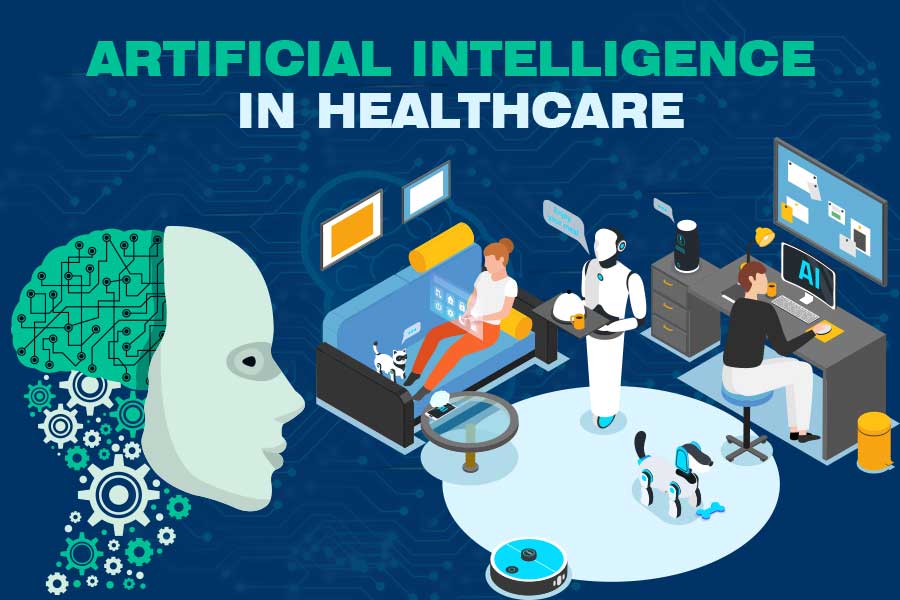Introduction: Artificial intelligence (AI) has advanced significantly in the last several years, changing a number of healthcare-related elements. AI algorithms are transforming the way doctors treat patients, from disease diagnosis to customized therapy regimens. The question of whether AI is capable of predicting mortality—or estimating the probability of someone’s passing away based on a variety of risk factors and health indicators—is one that makes for interesting research. Let’s investigate this intriguing subject and consider any possible healthcare ramifications.
Understanding Mortality Prediction
Mortality prediction involves assessing an individual’s risk of dying within a specified timeframe, often based on their health status, medical history, lifestyle factors, and demographic information. Traditionally, healthcare providers have relied on clinical judgment and established risk assessment tools to estimate mortality risk. However, AI offers a new approach, leveraging advanced algorithms and machine learning techniques to analyze vast amounts of data and identify patterns that may predict mortality more accurately.
The Role of AI in Mortality Prediction
AI algorithms can analyze electronic health records, medical imaging data, genetic information, and other relevant data sources to identify factors associated with increased mortality risk. By considering a wide range of variables and utilizing predictive analytics models, AI can generate personalized risk scores and prognosis estimates for individuals. These insights can help healthcare providers prioritize interventions, allocate resources efficiently, and tailor treatment plans to optimize patient outcomes.
Advancements in AI-Based Mortality Prediction
Recent studies have demonstrated the potential of AI in mortality prediction. For example, researchers have developed deep learning models that analyze electronic health records to forecast the likelihood of death within a specified timeframe. These models incorporate various health indicators, such as vital signs, laboratory test results, medication usage, and comorbidities, to generate accurate predictions. Additionally, AI algorithms can continuously learn and adapt to new data, refining their predictions over time and improving their accuracy.
Challenges and Limitations
While AI shows promise in mortality prediction, several challenges must be addressed. One key challenge is ensuring the accuracy and reliability of AI algorithms, as errors or biases in data analysis can lead to incorrect predictions. Additionally, ethical considerations, such as patient privacy and consent, must be carefully managed when using sensitive health data for predictive purposes. Moreover, the complex and multifaceted nature of mortality makes it difficult to capture all relevant factors accurately.
Implications for Healthcare
The integration of AI-based mortality prediction into clinical practice has the potential to enhance patient care and healthcare delivery. By identifying individuals at high risk of mortality, healthcare providers can implement preventive measures, initiate timely interventions, and engage patients in proactive health management. Furthermore, AI can assist in resource allocation and healthcare planning, enabling healthcare systems to allocate resources efficiently and improve overall population health outcomes.
Conclusion
While AI cannot predict mortality with absolute certainty, it offers valuable insights into mortality risk and prognosis estimation. By leveraging advanced algorithms and analyzing vast amounts of data, AI has the potential to revolutionize mortality prediction and enhance healthcare delivery. As researchers continue to refine AI models and address challenges associated with predictive analytics, the integration of AI-based mortality prediction into clinical practice holds promise for improving patient outcomes and advancing the field of medicine.
In conclusion, AI’s ability to predict mortality represents a significant advancement in healthcare, offering insights that can inform clinical decision-making and improve patient care. As technology continues to evolve, the potential for AI to transform mortality prediction and enhance healthcare delivery is boundless, paving the way for a future where predictive analytics play a central role in personalized medicine and preventive healthcare strategies.
How does AI predict mortality?
This question addresses the methodology and algorithms used by AI systems to analyze data and make predictions about an individual’s likelihood of dying within a specified timeframe.
What factors does AI consider when predicting mortality?
This question explores the various data sources and variables—such as medical history, demographic information, lifestyle factors, and genetic markers—that AI algorithms use to assess mortality risk.
How accurate are AI-based mortality predictions?
Here, individuals inquire about the reliability and precision of AI-generated mortality forecasts compared to traditional methods of mortality prediction, such as clinical judgment or standardized risk assessment tools.
What are the potential benefits of using AI for mortality prediction in healthcare?
This question delves into the potential advantages of incorporating AI-based mortality prediction into clinical practice, including early detection of high-risk patients, personalized treatment planning, and resource allocation optimization.
What are the ethical considerations surrounding AI-based mortality prediction?
Finally, this FAQ addresses the ethical implications of using AI algorithms to forecast mortality, touching on issues such as patient privacy, informed consent, algorithmic bias, and the responsibility of healthcare professionals in interpreting and acting upon AI-generated predictions.


